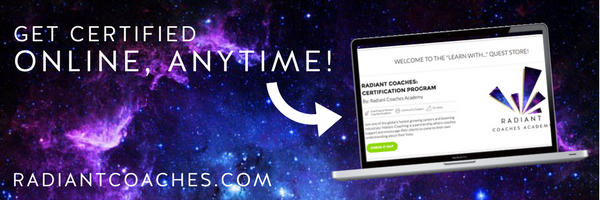You've undoubtedly heard of coaching, and you may even be considering it as a career. But what, exactly is it? And how does it work? In this article, we explain what coaching is, and we outline the 15 pillars of this unique, fulfilling profession.
The Definition of Coaching
The International Coach Federation, a global, member-based organization dedicated to advancing the coaching profession, defines coaching as, “partnering with clients in a thought-provoking and creative process that inspires them to maximize their personal and professional potential, which is particularly important in today's uncertain and complex environment.”
In other words, coaching is a process by which a coach leads a client on a journey of self-discovery and self-awareness, to become the best possible version of him- or herself.
It's an action-oriented, forward-focused process designed to support an individual as he or she reaches certain specific benchmarks over a set period of time. (In this way, it differs from counseling. Read my blog post on that topic, 6 Differences Between Coaching and Counseling, here.)
Holistic coaching, then, is when a coach works with clients from the standpoint of looking at their entire lives—the way all the elements of a client's life—health, career, relationships, money, and so on—are integrated, and how they impact each other.
The History of Coaching
Athletes determined to become champions have always utilized the knowledge and support of coaches to help them improve their skills and reach their goals.
In the 1980s, coaching emerged from the field of organizational development; that is, the concept, based on psychological theories, of executives striving to improve the way they interacted with their subordinates.
That evolved into executive coaching, coaching designed to help professionals find new positions, reach their potential, and achieve their career goals.
Executive coaching, then, evolved into life coaching, a framework to allow for introspection by encouraging a person to delve into himself, identify patterns that stop him from making the progress he wants to, and then take consistent action to make measurable progress toward his goals.
The Pillars and Cornerstones of Coaching
Here are the pillars and cornerstones of coaching—the structure that guides coaches to best guide their clients.
Coaching:
- Is non-directional. Coaches do not guide their clients to any one particular conclusion; rather, they guide their clients to identify the direction in which they want to go.
- Is non-judgmental. Coaches don't judge their clients; they simply aid in the process of self-discovery and support the process of clients taking action to reach their goals.
- Reveals the answers the clients have within. It's not the coach's job to find the answers.
- Involves intuition. Coaches must ask the questions they feel called to ask, and trust their instincts when it comes to help clients uncover their own paths.
- Builds the client's awareness. It's a process of self-discovery, during which a client becomes increasingly aware of his values and motives as they relate to his goals and actions.
- Builds the client's responsibility for his thoughts and actions. This gives clients a sense of empowerment, and a sense of control over their own lives.
- Builds the client's self-belief. When a client has confidence to take action, coaching truly works to support him as he begins reaching his goals.
- Is based on the idea that clients are already whole, and that they have the creative abilities to find solutions to their desires.
- Follows the client's agenda. As a client goes through the process of self-discovery, he may realize that he needs support in areas other than the ones for which he originally sought support.
- Addresses the client's life from a holistic perspective. All elements of a client's life are interconnected, and affect one another.
- Empowers the client to act. Action is the only way to create results, and that's what coaching is all about.
- Is client-centric. It's not about the coach giving advice—it's about the client working through his process of self-discovery.
- Is future-focused. Coaching is about moving forward from the present moment, taking action to achieve a specific goal.
- Is action-oriented. Coaching is not necessarily about emotions or feelings—it's about taking action to get specific results.
- Is enjoyable for both the client and the coach.
In conclusion …
Coaching—designed to empower clients to move forward in their lives—has become a multi-billion-dollar industry with an estimated 100,000 coaching professionals worldwide.
Forbes magazine reported that it's one of the fastest-growing industries worldwide—and that is likely because it promotes wonderfully symbiotic relationships between coaches and clients.
Clients are getting the results they want, and coaches are changing the world.
If you're considering becoming a certified coach, we'd love to invite you to learn more by visiting the Radiant Coaches Academy at www.radiantcoaches.com.
Source: Horizons Life Coaching, Paul Hemphill, February 2012

- Not All Coaching Certifications Are Created Equal: Here's What to Look For - August 25, 2019
- Want to Quit the 9 to 5? Become a Holistic Coach! - February 23, 2019
- 6 Reasons It’s Critically Important to Earn Your Coaching Certification - October 16, 2018







